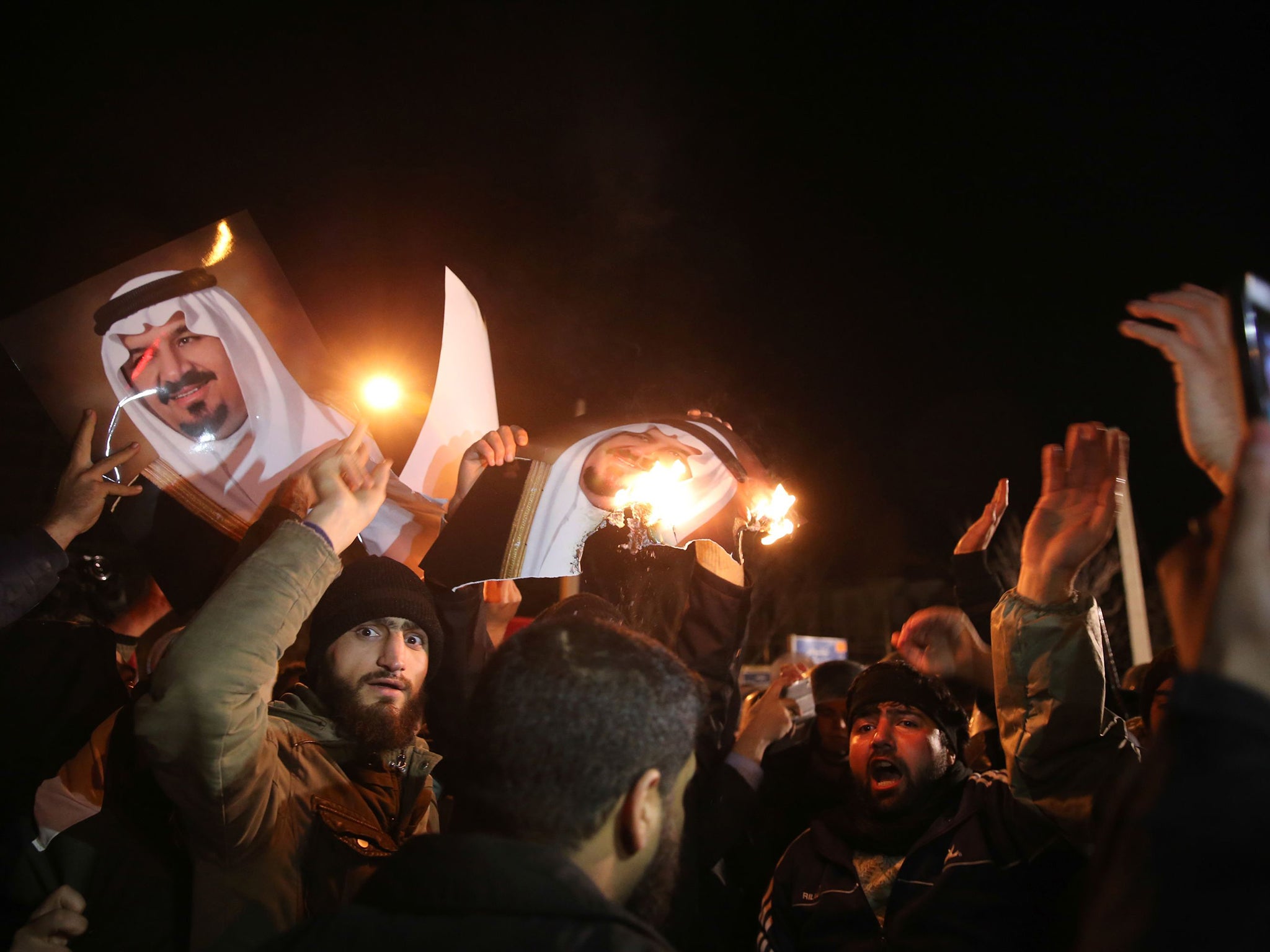Bahrain, Sudan and UAE join Saudi Arabia in severing Iran ties as Middle East crisis spreads
Key Saudi allies cite 'Iran's continued interference in the Gulf and Arab countries'

The execution of 47 people in Saudi Arabia has led to a dramatic rift in diplomatic relations across the Middle East, with three countries now joining the kingdom in severing ties with Iran.
While nations around the world condemned the mass Saudi executions, it was the killing of a prominent Shia cleric that led to the most fervent backlash in Iran.
The Iranian supreme leader, Ayatollah Ali Khamenei, warned Saudi Arabia of “divine vengeance” and shared a cartoon comparing the kingdom to the Isis militant group, while protesters in Tehran ransacked the Saudi embassy in anger.
Saudi Arabia denounced that reaction as “support for terrorism” and, on Sunday night, issued a 48-hour deadline for all Iranian diplomats to leave the kingdom.
Iran has since accused Saudi of using the embassy riot as an “excuse” to escalate tensions. But at around 12pm (GMT) on Monday, Saudi allies Sudan, Bahrain and the UAE all announced in quick succession that they too would be reducing diplomatic ties with Tehran.
In a statement issued via the WAM news agency, the UAE government said it was going to downgrade its links to Iran, cutting the number of permits it issued for diplomats. Bahrain and Sudan said they were severing ties altogether, with Iran ordered to remove its entire mission from Khartoum.
Saudi Arabia says its execution of 47 people on terror charges on Saturday was “a matter of sovereignty and no country should interfere in the kingdom’s internal affairs” – something it has since accused Iran of doing.
On Monday, the UAE cited “Iran’s continued interference in the Gulf and Arab countries’ internal affairs” for the deterioration in diplomatic relations.
Outside the Middle East, world governments including France, China and the US have issued calls for calm and a return to diplomacy.
Moscow has offered itself as a mediator between the main players, citing its success in bringing Saudi Arabia and Iran to the negotiating table over Syria.
Join our commenting forum
Join thought-provoking conversations, follow other Independent readers and see their replies
Comments